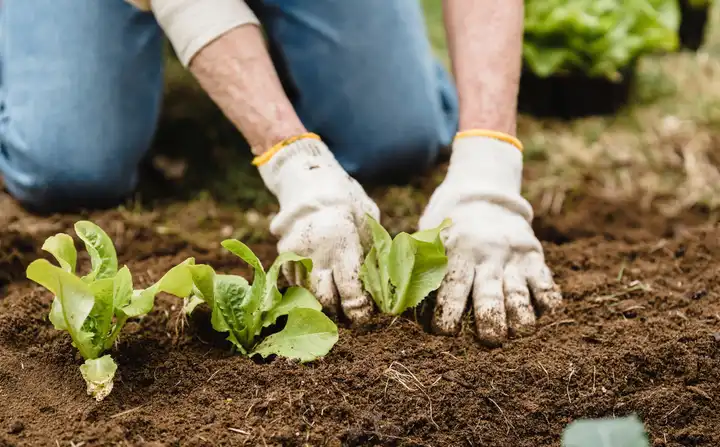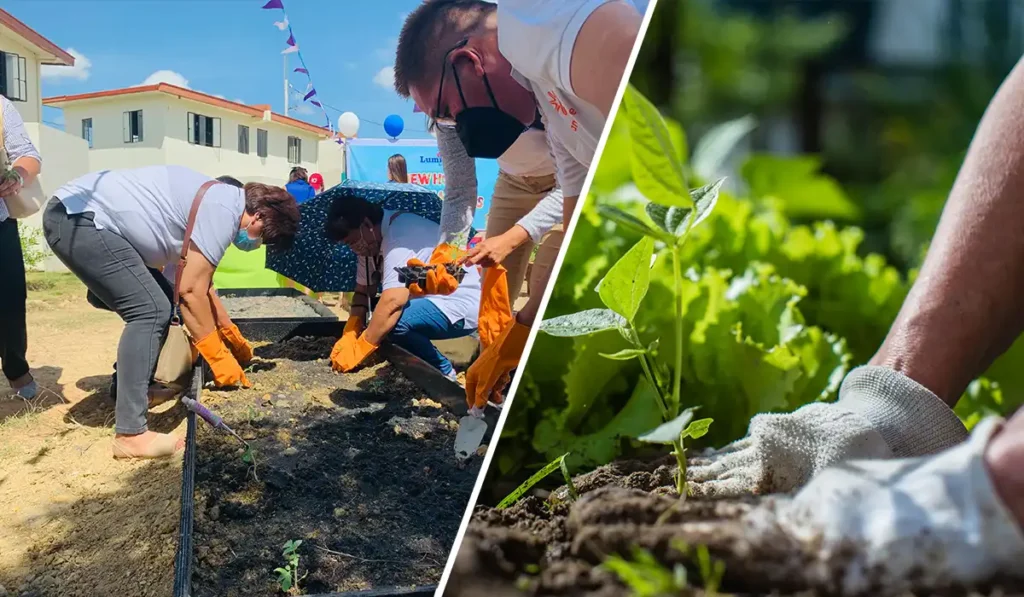In a world that is increasingly conscious about sustainability and eco-friendly practices, the term “bòngalive” is making waves. If you’re a sustainable living enthusiast, part of the home gardening community, or an eco-friendly innovator, this blog post is for you. We’ll explore what bòngalive is, its benefits, and how you can incorporate it into your lifestyle to make a positive impact on the environment.
What is Bòngalive?
Bòngalive is an innovative concept combining sustainability, home gardening, and eco-friendly living. It revolves around integrating natural elements and processes to create a balanced and thriving ecosystem within your home environment. Bòngalive can encompass anything from growing your own vegetables to using eco-friendly products and recycling waste for better resource management.
The Origins of Bòngalive
The term bòngalive stems from a blend of traditional agricultural practices and modern eco-innovation. It was first coined by environmentalists who saw the potential of merging the old and new to create sustainable living solutions. Its principles are deeply rooted in age-old farming techniques that have been adapted to fit contemporary urban lifestyles.
Why Bòngalive Matters
Understanding why bòngalive is crucial can help motivate you to adopt it in your daily life. At its core, bòngalive promotes:
- Environmental Sustainability: By using natural resources responsibly, we can reduce our carbon footprint.
- Health Benefits: Growing your own food ensures you consume fresh and organic produce.
- Economic Savings: Home gardening and recycling help save money in the long run.

Benefits of Bòngalive
Enhancing Soil Health
One of the key aspects of bòngalive is maintaining healthy soil. Healthy soil is rich in nutrients, which are essential for plant growth. By composting organic waste and avoiding chemical fertilizers, you can improve soil quality, leading to healthier plants and a more productive garden.
Reducing Waste
Bòngalive encourages recycling and repurposing waste materials. Instead of contributing to landfills, organic waste can be composted to enrich your garden soil. This not only reduces the amount of waste but also closes the nutrient loop, providing plants with the essential nutrients they need.
Promoting Biodiversity
A bòngalive approach to gardening supports biodiversity. By planting a variety of species, you create a habitat for different insects and animals. This helps to maintain a balanced ecosystem and can even improve pollination and pest control in your garden.
How to Start Your Bòngalive Journey
Assess Your Space
The first step in adopting bòngalive practices is to assess your available space. Whether you have a large backyard or a small balcony, there are ways to incorporate sustainable gardening techniques. Understand the sunlight, wind patterns, and soil quality in your area to make informed decisions about what to plant and where.
Choose the Right Plants
Selecting the right plants is crucial for a successful bòngalive garden. Opt for native species that are well-adapted to your local climate. These plants require less water and are more resistant to pests and diseases. Additionally, consider incorporating a variety of plants to promote biodiversity.
Composting and Soil Health
Composting is a foundational practice in bòngalive gardening. Collect kitchen scraps, yard waste, and other organic materials to create nutrient-rich compost. Regularly adding compost to your soil will improve its structure, fertility, and water-holding capacity.
Bòngalive Techniques for Home Gardening
Companion Planting
Companion planting is a technique where different plants are grown together to benefit each other. For example, planting basil alongside tomatoes can improve the flavor of the tomatoes and repel pests. Research different plant combinations to find the best pairings for your garden.
Rainwater Harvesting
Bòngalive emphasizes the efficient use of natural resources, including water. Set up a rainwater harvesting system to collect and store rainwater for your garden. This reduces your reliance on municipal water supplies and helps conserve this precious resource.
Natural Pest Control
Avoid using chemical pesticides that can harm the environment and beneficial insects. Instead, adopt natural pest control methods such as introducing predator insects, using neem oil, or planting pest-repellent plants like marigolds and garlic.
Integrating Bòngalive into Your Daily Life
Eco-Friendly Products
Incorporate eco-friendly products into your daily routine. Choose biodegradable cleaning products, reusable shopping bags, and energy-efficient appliances. These small changes can significantly reduce your environmental footprint.
Sustainable Eating Habits
Grow your own vegetables and herbs to enjoy fresh, organic produce. If you can’t grow everything yourself, support local farmers’ markets and choose seasonal, organic produce. Reducing meat consumption and opting for plant-based meals can also have a positive impact on the environment.
DIY Projects
Get creative with DIY projects that promote sustainability. Build your own compost bin, create seed starters from recycled materials, or craft reusable beeswax wraps to replace plastic wrap. These projects are not only fun but also encourage a sustainable lifestyle.
Community and Bòngalive
Sharing Resources
Bòngalive is not just an individual practice but a community effort. Share resources, tools, and knowledge with your neighbors and friends. Organize seed swaps, gardening workshops, or community clean-up events to foster a sense of community and collective responsibility.
Supporting Local Initiatives
Support local sustainability initiatives and organizations that promote eco-friendly practices. Volunteer your time, donate, or participate in events that aim to improve the environment and raise awareness about sustainability.
Educating Others
Spread the word about bòngalive and its benefits. Educate others through social media, blogs, or community presentations. By raising awareness, you can inspire more people to adopt sustainable practices and contribute to a healthier planet.
Bòngalive Success Stories
Urban Gardens
Many cities around the world have successfully implemented urban gardening projects that follow bòngalive principles. These gardens provide fresh produce to urban dwellers, promote community involvement, and transform unused spaces into green oases.
Zero-Waste Homes
Families who have embraced bòngalive have achieved impressive results in reducing their waste. By composting, recycling, and making conscious purchasing decisions, they have minimized their impact on the environment and set an example for others to follow.
Sustainable Businesses
Businesses that adopt bòngalive principles are making a significant impact. From eco-friendly packaging to sustainable sourcing, these companies are leading the way in promoting environmental responsibility and inspiring others to do the same.
Challenges and Solutions in Bòngalive
Limited Space
If you have limited space, consider vertical gardening or container gardening. These methods allow you to grow a variety of plants in small areas, making the most of the space you have available.
Time Constraints
Busy lifestyles can make it challenging to maintain a bòngalive garden. Start small with a few easy-to-care-for plants and gradually expand as you become more comfortable. Set aside dedicated time each week to tend to your garden and enjoy the process.
Pests and Diseases
Dealing with pests and diseases is a common challenge in gardening. Stay vigilant and regularly inspect your plants for signs of trouble. Use natural remedies and rotate crops to prevent the buildup of pests and diseases in your garden.
Future of Bòngalive
Technological Innovations
Advancements in technology are opening up new possibilities for bòngalive gardening. From smart irrigation systems to AI-powered plant monitoring, these innovations can help you optimize your garden and make sustainable living more accessible.
Growing Awareness
As awareness about sustainability continues to grow, more people are likely to adopt bòngalive practices. Educational programs, social media campaigns, and community initiatives will play a crucial role in spreading the message and inspiring action.
Policy Support
Governments and organizations are increasingly recognizing the importance of sustainability. Supportive policies and incentives can encourage individuals and businesses to adopt bòngalive practices, creating a ripple effect that benefits the entire planet.
Resources for Bòngalive Practice
Recommended Reading
Explore books and articles that delve into sustainable gardening and eco-friendly living. Titles such as “The Organic Gardener’s Handbook of Natural Pest and Disease Control” offer in-depth knowledge on effective strategies to manage gardens without harming the environment. Similarly, “The Zero Waste Home” provides insights into reducing waste in daily life.
Online Communities
Join online forums and social media groups focused on sustainability and gardening. Platforms like Facebook and Reddit have active communities where you can share experiences, ask questions, and find inspiration from fellow bòngalive enthusiasts. Participating in these spaces can help cultivate your knowledge and make lasting connections.
Workshops and Classes
Look for local workshops or online classes that teach sustainable gardening techniques. Many community colleges, botanical gardens, and sustainability organizations offer courses designed to empower individuals with the skills needed to successfully implement bòngalive practices in their lives.
By leveraging these resources, you can enhance your bòngalive journey, deepen your understanding of sustainable practices, and contribute positively to the planet.

Inspiring Change Through Bòngalive
Personal Transformation
Adopting bòngalive practices not only benefits the environment but also fosters personal growth and transformation. By engaging in sustainable practices, you learn to appreciate the smaller things in life, cultivate patience, and develop a sense of responsibility toward the Earth. This journey often leads to improved mental well-being, as nurturing plants and connecting with nature can be therapeutic.
Building Resilience
it encourages resilience in the face of challenges posed by climate change and environmental degradation. By focusing on sustainability, individuals and communities become better equipped to adapt to the changing landscape, leading to more robust local food systems and stronger community ties. As more people embrace these practices, the collective impact can inspire a cultural shift toward a more sustainable future.
Celebrating Success
Recognising and celebrating achievements within the bòngalive community is essential for motivating further action. Share your successes, whether it’s your first homegrown produce, a successful community clean-up, or a reduction in household waste. These celebrations can take the form of local events, social media highlights, or storytelling sessions, inspiring others to embark on their own sustainable journeys.
Conclusion
it is more than just a trend—it’s a way of life that promotes sustainability, health, and community. By incorporating it principles into your daily routine, you can make a positive impact on the environment and inspire others to do the same. Start small, stay consistent, and enjoy the journey towards a more sustainable future.
Ready to take the next step? Begin your bòngalive journey today and discover the magic of sustainable living. Connect with our community, explore educational resources, and share your success stories. Together, we can make a difference.


